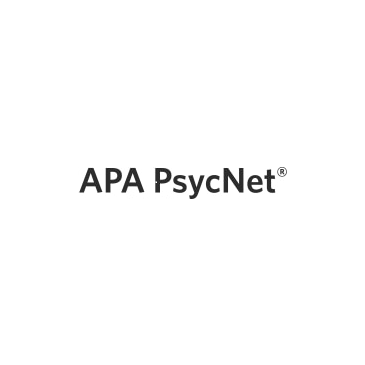
Joey Heffner
@jpheffne
Followers
471
Following
645
Media
21
Statuses
140
Psychology postdoc at Yale studying emotions and decision-making with @RobbRutledge
New Haven, CT
Joined October 2016
I am SO excited to share my latest #preprint with collaborators @RobbRutledge, @zebkDotCom, @MartinJChadwick, @summerfieldlab, and others from DeepMind: "Increasing happiness through conversations with artificial intelligence" https://t.co/RGmAAGeqBS A short 🧵 1/7
arxiv.org
Chatbots powered by artificial intelligence (AI) have rapidly become a significant part of everyday life, with over a quarter of American adults using them multiple times per week. While these...
3
24
63
Want to dive deep? Submit a symposium! Have an idea to workshop or results to share? There are posters for that! Want to speak on empirical or theoretical work? Give a flash talk! Want to spark discussion? Chair an innovation forum! So many ways to engage! https://t.co/rdaCYBQVcr
2
5
16
Why do human–AI relationships need socioaffective alignment? As AI evolves from tools to companions, we must seek systems that enhance rather than exploit our nature as social & emotional beings. Published today in @Nature Humanities & Social Sciences! https://t.co/y92riRuvDF
8
58
280
A putative neural correlate of mood! One big (scandalous?) idea, simple analyses, and the STRONGEST brain/behavior correlation I've EVER seen (which is shocking, given that it's mood). Work with: You-Ping Yang, Catrina Hacker & Veit Stuphorn https://t.co/cI3b3uvhWP
biorxiv.org
Understanding how the brain reflects and shapes mood requires resolving the disconnect between behavioral measures of mood that can only be made in humans (typically based on subjective reports of...
2
17
62
Fixed it: --> last year, the U.S. sold more educational services to the rest of the world than it sold in natural gas and coal **combined** --> every $1 of research funded by NIH generates $2.56 in economic activity --> more than 1.1M foreign students come to the U.S. each year
95
2K
6K
Our goal for this project was to establish a baseline for understanding how human-AI conversations influence happiness. When millions of people are interacting with these AI chatbots daily, even a small effect on well-being can have significant societal ramifications. end 🧵
0
0
4
What about the dynamics within a conversation? We provide evidence for a bidirectional relationship between participants and the AI, such that participants adopt the AI chatbot's language more for negative topics: 6/7
1
0
2
Across all topics, the AI chatbot mirrored participants' sentiment and the emotional tone of both AI chatbot and participants predicted post-conversation happiness: 5/7
1
0
1
We quantified people's unconstrained responses using LLM-assisted sentiment analysis and developed a novel computational model using sentiment PEs to explain happiness ratings. In short, the AI chatbot caused users to express more positive sentiment than expected: 4/7
1
0
1
We found that, across the board, conversations with AI increased momentary happiness compared to journaling, with the largest effect sizes on discussing topics that typically would make people unhappy: 3/7
1
0
1
We started this research with a single question in mind: How do conversations with AI influence subjective well-being? Participants either engaged in conversations with an AI chatbot or wrote journal entries on the same randomly assigned emotional topics: 2/7
1
0
1
This was a joy to work on and is the first of many language-based mental health insights to come from the lab so stay tuned :)
My first first-author paper with @jpheffne @gloriawfeng Jutta Joormann & @RobbRutledge is now published in @PNASNews! 🎉 Human- and ChatGPT-rated language sentiment of brief text responses predicted changes in depression. https://t.co/xqhrZteo5v
@YalePsychology @Yale 🧵(1/n)
1
0
7
5. Dissociable neural signals for reward and emotion prediction errors https://t.co/YNz1TMvG68
biorxiv.org
Reinforcement learning models focus on reward prediction errors (PEs) as the driver of behavior. However, recent evidence indicates that deviations from emotion expectations, termed affective PEs,...
0
0
0
3. A probabilistic map of emotional experiences during competitive social interactions https://t.co/KuomsmZFAY 4. Emotion prediction errors guide socially adaptive behavior https://t.co/GdqsJzmLvx
nature.com
Nature Human Behaviour - Heffner et al. show that violations of emotion expectations—emotion prediction errors—motivate social choice, such as punishing norm transgressors. Emotion...
1
0
0
1. A generalizable framework for assessing the role of emotion during choice https://t.co/f2PwJsvKqc 2. Emotional responses to prosocial messages increase willingness to self-isolate during the COVID-19 pandemic https://t.co/1DDlkYPZiw
psycnet.apa.org
The study of emotion has been plagued by several challenges that have left the field fractionated. To date, there is no dominant method for measuring the nebulous and often ill-defined experience of...
1
0
0
If you'd like to read more about our research, you can find the published works from the dissertation below. A huge shout out to all of my collaborators who made these projects possible: Jae Young-Son, @marclluis, @froemero1, Matt Nassar, and of course @orielf
1
0
1
I am so honored and happy to have received the Best Dissertation Award 2023 from @SocforNeuroecon
https://t.co/ZyracwEL7S I owe a great amount of gratitude toward my amazing PhD mentor @orielf for her unwavering guidance and support on these projects
8
4
50
Congratulations! I remember seeing bits and pieces of this over the years, it's incredible to see how @harrison_ritz has weaved them together to explain how the brain monitors and uses multiple control streams. Excellent paper!!
fMRI paper with @amitaishenhav finally out in print! https://t.co/tQKvGU9BEG How can we control multiple forms of attention? Our results suggest through 'priority subspaces' across the frontoparietal network that independently control how we process different features.
1
0
6
New paper out! Large Language Models are biased to overestimate profoundness. https://t.co/F74jn4BmQd
3
2
16
It's wonderful working with thoughtful collaborators @marclluis & @orielf! This project was a delight to work on. We took an unconventional approach toward decision-making and showed that mental representations about uncertainty predict gambling decisions. Details in the paper!
New paper out! We show that how individuals represent uncertainty concepts (probable, unlikely, possible) predicts the decisions they make under uncertainty. w/@jpheffne & @orielf! https://t.co/OZEspFpP7E
0
1
10











